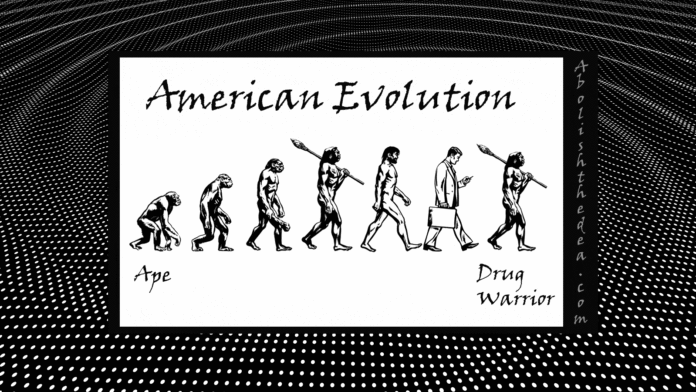In the “Wisdom of Life,” Arthur Schopenhauer sums up an unspoken assumption of Western philosophy when he writes:
“Every man is pent up within the limits of his own consciousness and cannot get directly beyond those limits any more than he can get beyond his own skin.”
Indeed, Schopenhauer’s famous pessimism is derived from the daily observance of this supposed “fact of life.”
But what if it’s not a fact? What if we discovered that human psychology was quite therapeutically pliable after all? Wouldn’t such a finding require a revision, not only of Schopenhauer’s pessimistic philosophy but of Western philosophy in general, insofar as it presupposes stark limitations on the ability of individual human beings to change their own psychology for the better? Wouldn’t it require the doomsayers of today to admit that there may be hope for humanity after all, if we only open our eyes (and our research laboratories) to the astonishing psychological healing potential of psychedelic plants?
These are not just hypothetical questions, for a scientific study of psychoactive plants is now proving to Western researchers what partakers of these substances have known for millennia, namely that plants like ibogaine, ayahuasca, and psilocybin can be used strategically to foster new understandings in the human mind, to help one rise above a parochial and neurosis-making upbringing, as well as problematic genetics, and to thrive in the world, in spite of the negative cards that they may have been dealt both by nurture and by nature.
But Western philosophy has entirely missed the implications of these developments. Why? Because most philosophers (like most European-Americans) are stealth puritans who are suspicious of psychoactive plants, unfavorably associating them with witches in Medieval times and with hippies in the present, a jaundiced view of Mother Nature that no doubt traces its origins to the Garden of Eden and that fiasco with the apple (or was it a pomegranate?).
Moreover, the Western penchant for materialism has encouraged drug researchers to dismiss psychedelic mental states out of hand as mere madness, refusing to consider the time-honored evidence of their psychologically therapeutic value, while they dogmatically search instead for reductively formulated nostrums whose chemical effects on the body may (at least in theory) be quantified. It’s as though today’s scientific credo with respect to psychological cures was:
Better a theoretically justifiable materialist solution with dubious results than a non-quantifiable solution that actually works.
How would a change in such attitudes benefit philosophy? To make this clear, we can ask the following question:
What would Schopenhauer’s philosophy have been like had he experienced the mind-expanding effects of naturally occurring DMT?
I think the answer is obvious: he would have rewritten his largely normative credos in a far more prescriptive fashion, insisting that humanity had no justifiable reason to abjure psychological plant medicines and that, to the contrary, there is every reason to think that such use can be philosophically therapeutic, and even ontologically revealing.
Why? Because this hypothetical Schopenhauer of ours would have discovered that psychedelics are custom-made to provide the user with a kind of intuitive proof of the tenets of what Aldous Huxley identified as “the perennial philosophy,” that unifying view of life that has long been recognized and advocated by the non-materialists of the world.
I may be giving Schopenhauer too much credit here, but his use of DMT may have even spurred him to propose the following instructive syllogism:
- Proposition 1: The unexamined life is not worth living.
- Proposition 2: Psychedelics provide us with an unrivaled means to examine life.
Conclusion: Psychedelic plants are an indispensable part of every philosopher’s tool chest.
Such a syllogism, developed in the 19th century, could have prevented America’s march toward drug-war fascism, by reminding us that plants are our friends and that problems with their misuse are precisely that – problems with their misuse and not with the substances themselves. Meanwhile, if other philosophers were to take Schopenhauer’s lead, the materialist west could begin a long-awaited merger with eastern thought and a unifying understanding of reality could finally be assayed.
As for what would be left behind by such a philosophical rebooting, good riddance, for it would be nothing but desperate materialist arguments about Matrix conspiracies, brains in a vat, and the supposed illusory nature of consciousness (and even reality) itself — all of which mad speculation is elegantly refuted by the intuitive lessons provided by the psychedelic experience, at least when said experience is performed with due reverence (even if such reverence is only adopted heuristically by a materialist skeptic) and a willingness to learn.
Pessimism got the final word in Schopenhauer’s actual philosophy, but that is only because, like most western thinkers then and now, he was reckoning without a consideration of what psychoactive plants might have to say on the matter. Of course, in his day, he had an excuse. He was no doubt unaware of the philosophically empowering potential of Mother Nature.
But today’s materialists have no such excuse. Therefore, when they try to tell us that life is even bleaker than Schopenhauer implied, they should follow all such pronouncements with an asterisk, to inform the reader that the philosopher in question has not yet evaluated his dour outlook in the light of any ontological intuitions provided by psychedelic plants.
Perhaps someday there will even be a sort of reverse drug test at the Philosophy Department’s front door, so that no one can enter who has not had at least one experience with psychedelic medicine. At very least, today’s materialist philosopher should come clean about their willful renunciation of nature’s pharmacy. If they want to tell us that reality itself does not exist, that’s fine – as long as they admit to having unscientifically discounted a priori the contrary evidence provided by the reverent and strategic use of Mother Nature’s plants.
